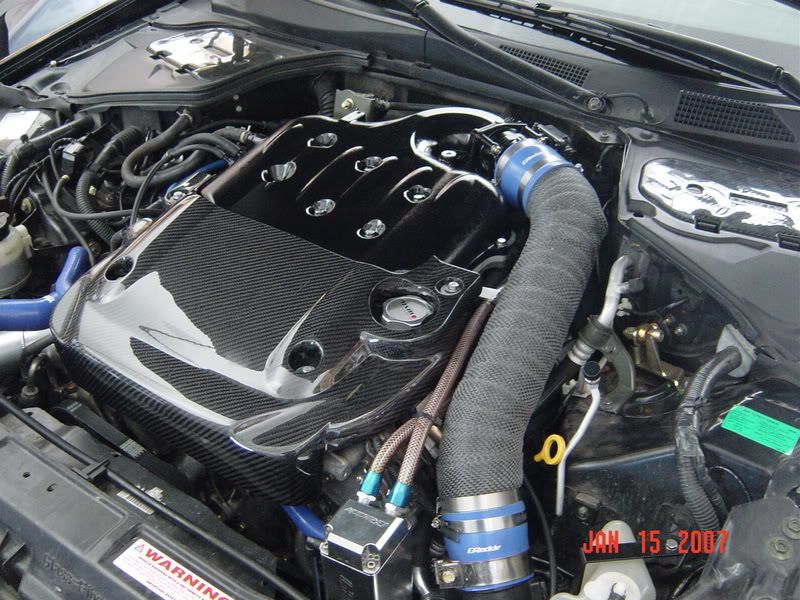View Poll Results: Do you have your engine cover on?
Yes!




70
45.45%
No!




54
35.06%
Yes but it's modded.




18
11.69%
Yes but I'll be removing it...




8
5.19%
No but I'm gonna put it back on...




4
2.60%
Voters: 154. You may not vote on this poll
Engine cover or no?
#20
Originally Posted by DaveB
According to my datalogging, it does not trap any measureable heat.
It does trap a lot of heat and this has been proven many times. It is obvious it traps heat. Use a damn infared temp gauge and measure the manifold temp before the cover removed and after on the same type of temps and driving conditions. It is almost a 40 degree difference.
YOU sir need to quit spewing wrong information.
PS, if it didn't trap heat, then how come the 350Z only covers the front part of the engne for performance instead of sound insulation?
Last edited by G35_TX; 02-01-2007 at 12:15 PM.
#22
Originally Posted by G35_TX
It does trap a lot of heat and this has been proven many times. It is obvious it traps heat. Use a damn infared temp gauge and measure the manifold temp before the cover removed and after on the same type of temps and driving conditions. It is almost a 40 degree difference.
YOU sir need to quit spewing wrong information.
YOU sir need to quit spewing wrong information.
PS, if it didn't trap heat, then how come the 350Z only covers the front part of the engne for performance instead of sound insulation?
2) Most luxury-focused cars are trending to plastic clad engine bays
3) And the most obvious, there would be a clearance issue with the strut tower bar and also the hood.
#23
For those of you doing this mod for performance, consider this, the intake temps are measured at the MAF and from there the air fuel ratio and timing tables are calculated. Also, the air moving through the intake manifold is going 10 to 40mph in a span of about 25". Just how much additional heat do you think the air will take on going through such a short run at a high rate of speed. The truth is, if Nissan thought that the intake air was going to be impacts dramatically by the manifold, then they'd collecting the intake temp information in the manifold.
Finally, if by some marvel of engineering, you were able to cool the air 10+ degree from the MAF to the manifold, the car wouldn't run correctly because the ECU would think the ingested air was 10 degrees hotter therefore the A/F ratio and timing wouldn't be correct and the car would be.........SLOWER.
Finally, if by some marvel of engineering, you were able to cool the air 10+ degree from the MAF to the manifold, the car wouldn't run correctly because the ECU would think the ingested air was 10 degrees hotter therefore the A/F ratio and timing wouldn't be correct and the car would be.........SLOWER.
#24
Running at the track shows nothing in this type of area. You need to actually be daily driving, sitting at idle for long periods of time to actually allow the temp to go up with not much airflow.
So again your false logic prevails as usual.
So again your false logic prevails as usual.

Originally Posted by DaveB
I've run my G at the track multiple times and have made about 30 passes. There is NO difference in ET and MPH with a scalding hot intake manifold or a cold one. If anything, the car is quicker on the 2nd or 3rd hot lap. BossSho and other avid racers have reported the same exact thing.
1) Ummm...it's a sportscar therefore people most likely want to hear the engine.
2) Most luxury-focused cars are trending to plastic clad engine bays
3) And the most obvious, there would be a clearance issue with the strut tower bar and also the hood.
1) Ummm...it's a sportscar therefore people most likely want to hear the engine.
2) Most luxury-focused cars are trending to plastic clad engine bays
3) And the most obvious, there would be a clearance issue with the strut tower bar and also the hood.
#25











